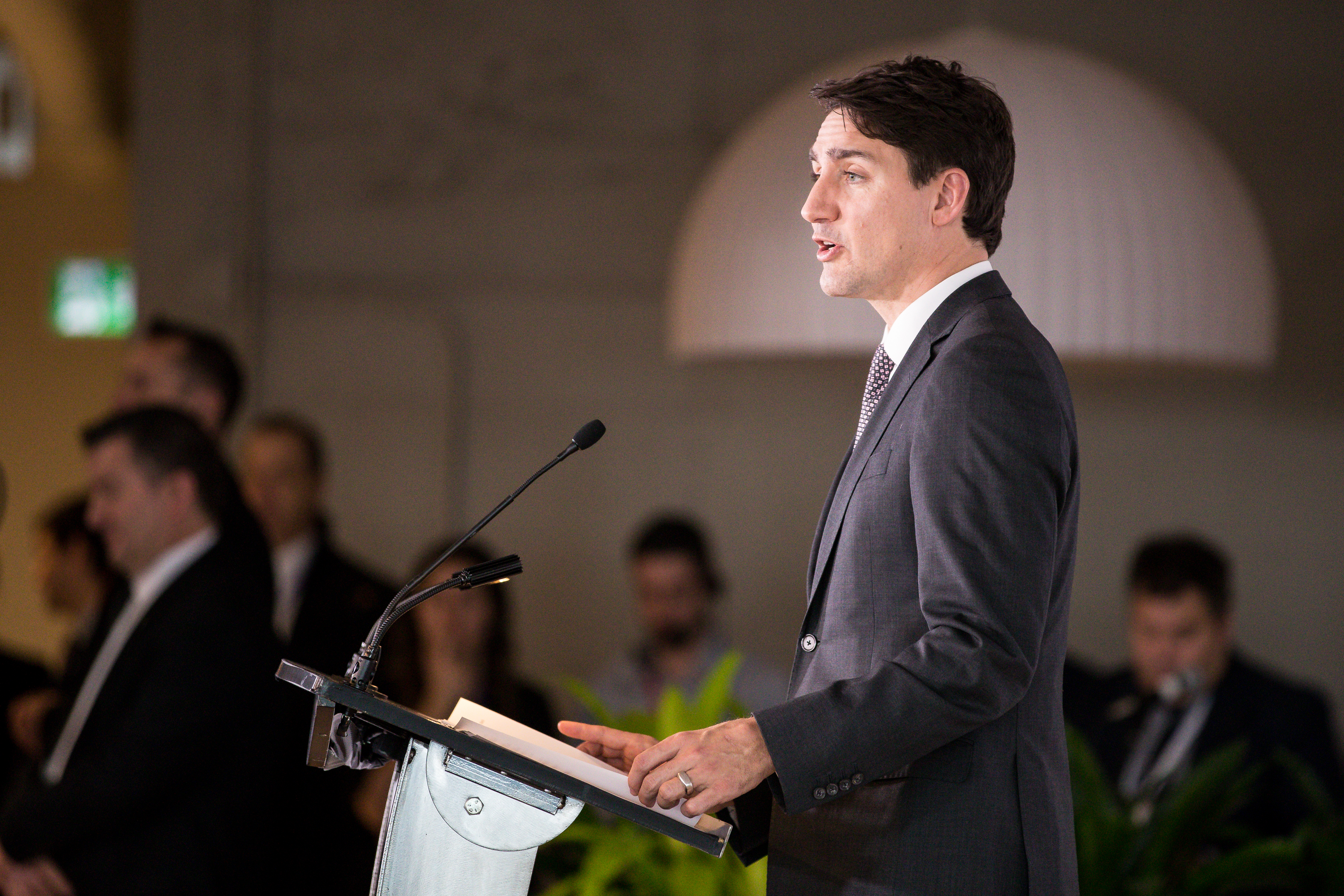Canada and France plan an international panel to assess AI’s dangers

As China and the United States battle to dominate the development of artificial intelligence, Canada and France are asserting themselves as leaders in the escalating ethical debate over the technology.
Canada’s prime minister, Justin Trudeau, and Mounir Mahjoubi, the French secretary of state for digital affairs, announced plans for the International Panel on Artificial Intelligence this week at the G7 nations’ meeting in Montreal to discuss the impacts of artificial intelligence.
According to a mandate issued by the prime minister’s office, the ongoing international coalition will bring together AI engineers and other scientists to assess the dangers of the technology and formulate appropriate policies among participating nations.
“If Canada is to become a world leader in AI, we must also play a lead role in addressing some of the ethical concerns we will face in this area,” Trudeau said at the end of the G7 Multi-Stakeholder Conference on Artificial Intelligence.
He and French president Emmanuel Macron had revealed a collaboration on the subject earlier this year but provided few details at the time.
In an interview after Trudeau’s speech, Mahjoubi said that France and Canada have made progress in persuading other nations to join the cause.
“We already have partners who want to join us on this panel,” Mahjoubi said. “I can’t announce any countries, but I can tell you there will be G7 members and there will be EU members.”
Mahjoubi said the panel would ideally cover issues such as AI ethics and autonomous weapons, although he noted that the latter is already being discussed internationally. He also said that the coalition would invite all nations, including China, to work on standards and norms for the technology. China has come under particular criticism for rapidly deploying AI in surveillance and policing.
“Should we talk to China about the field? Of course,” Mahjoubi said. “It’s also our responsibility to create a set of common values, and to say it loud, and to be able to show why our system of values is more resonant.”
Canada and France might not have the financial or commercial might of the United States or China, but they have played an outsize role in the recent development of artificial intelligence. Notably, some major figures in AI from French and Canadian research institutions have been prominent in the field’s most successful trend, deep learning.
In addition to producing prominent AI researchers, the two nations have also launched national AI plans.
France announced its $1.85 billion plan earlier this year, while Canada invested $125 million into a Pan-Canadian Artificial Intelligence Strategy (CIFAR), centered on new research institutes in Edmonton, Montreal, and Toronto. This effort has created new research posts and projects, and it has prompted major tech companies to establish research centers around Canada’s AI hubs.
At the same event, Trudeau announced $230 million in funding for a Canadian initiative, called Scale AI, that aims to apply artificial intelligence to supply-chain logistics. Last February, the Canadian government announced that a total of $950 million would be invested in various technology-focused superclusters across the country by 2023.
Canada currently holds the presidency of the G7, a group of the seven largest advanced economies in the world. At the G7 event, Navdeep Bains, the Canadian minister of innovation, said that concern over the impact of AI on jobs was a big theme during the meetings. “We’re very optimistic about AI, but I think we need to genuinely recognize the challenges and fears that exist as well,” Bains said.
Deep Dive
Policy
Is there anything more fascinating than a hidden world?
Some hidden worlds--whether in space, deep in the ocean, or in the form of waves or microbes--remain stubbornly unseen. Here's how technology is being used to reveal them.
A brief, weird history of brainwashing
L. Ron Hubbard, Operation Midnight Climax, and stochastic terrorism—the race for mind control changed America forever.
What Luddites can teach us about resisting an automated future
Opposing technology isn’t antithetical to progress.
Africa’s push to regulate AI starts now
AI is expanding across the continent and new policies are taking shape. But poor digital infrastructure and regulatory bottlenecks could slow adoption.
Stay connected
Get the latest updates from
MIT Technology Review
Discover special offers, top stories, upcoming events, and more.